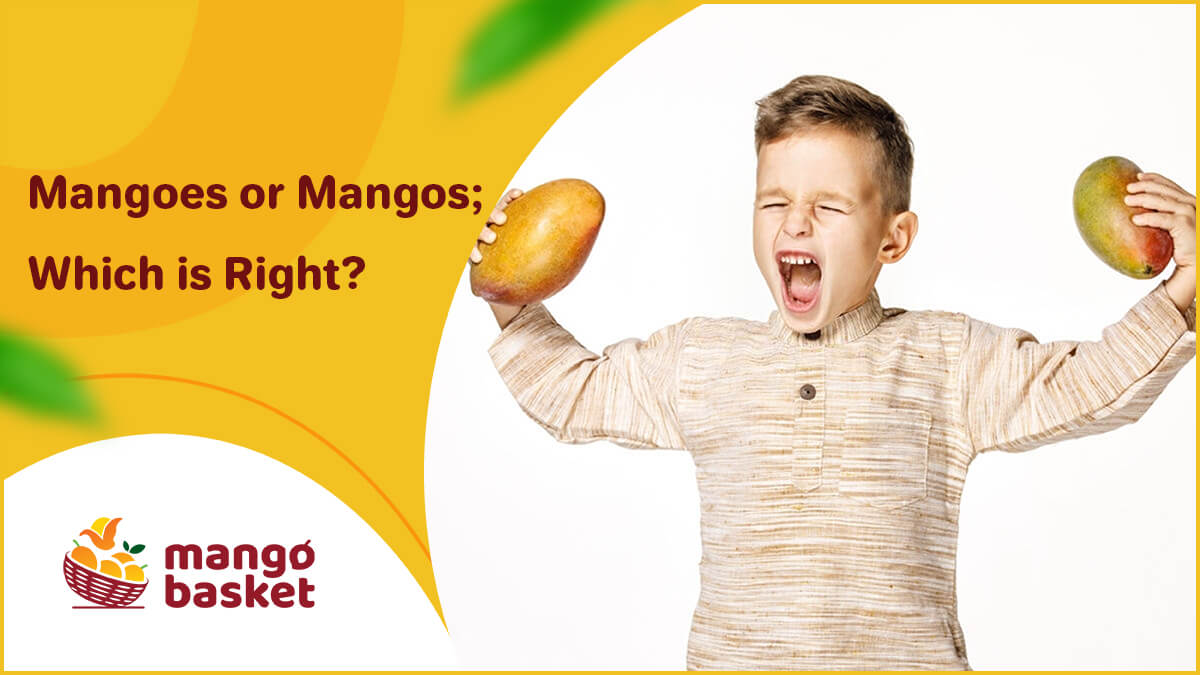Mango or Mangoes? Discover the Correct Plural Form

Are you puzzled by the plural form of mango? Whether it’s ‘mangoes’ or ‘mangos’, this article will clear up the confusion once and for all.
Mangoes either derive their name from the Tamil word ‘māṅkāy’ or the Malayalam word “māṅṅa.” While there is some debate among linguists, the term “mango” is more likely derived from the Tamil word “māṅkāy” rather than Malayalam. Yes, “mangoes” are countable. “Countable” refers to objects or entities that can be individually counted as discrete units. These items have distinct and separate identities, allowing for the enumeration of their quantity, such as “apples” or “chairs.”
The word “mango” has a fascinating etymological path. It originated from the Dravidian Ainu speakers as “ma kay,” meaning “an uncultivated fruit.” This term passed into Tamil as “mankay,” and in the fifteenth century, Malay sailors adopted it as “mangga.” Portuguese sailors then slightly changed it to “manga,” which eventually spread to England as “mango.”
The mango is not only a fruit but also a symbol of cultural significance. It is an important part of Indian culture, where a famous episode of the life of Buddha happened at a mango grove, as related in the Buddhist scripture known as the Ambapālisutta.
The term “mango” is also mentioned in various contexts, such as “mangoing,” “mango worm,” and “apple mango,” showcasing the versatility of the word in the English language.
Therefore, the word “mango” has a rich etymological history, reflecting the cultural exchanges and linguistic evolutions that have occurred over centuries. From “ma kay” to “mango,” this tropical fruit has left an indelible mark on languages and palates around the world.
Before we say anything more on this, let us first understand that the English language can be complicated, and the debate about mangoes or mangos falls into that complicated part. In short and crisp words, this debate concludes that both can be right in terms of the English language as mangoes as well as mangos. Practically, nouns that end with an -o, and are preceded by a vowel will end with s, for example, radios. If a consonant precedes, it will conclude with ‘es’, for example, potatoes. If we think like that, mangoes should be the right ones.
Well, this was a glimpse of it, but now let’s go into depth and understand both terms briefly.
Mango or Mangoes? Discover the Correct Plural Form
Plural Form of Mango: Mangoes or Mangos – Which is correct?
To be precise, both plural forms of mango i.e. mangoes or mangos are considered correct, but the English language is very complicated, hence the age-old debate. Most of the nouns present in English vocabulary end with -o, or have a vowel before the ending with -o, and the plural ends with -s, for example, radios and zoos. When we have a consonant before -o there are protocols set in the English language that will help. But there is an exception where we use ‘es’ in plural forms, such as heroes and potatoes. But both forms are right, as they vary from individual to individual.
The word mango falls into both of the categories mentioned above, so you can take both forms right (mangoes or mangos), Also, you can buy alphonso mangoes online from our website too.
Mangoes or Mangos: What’s the difference?
Talking about the difference between the two words, there is no such difference, apart from the varieties of mangoes we found in different parts of the continent. Both are the plural form of mango, but it has been in debate for many centuries, and to date, there is no complete answer between mangoes and mangos.
The terms mangoes or mangos both refer to the same delicious tropical fruit. “Mangoes” is the more accepted plural form of mango, while “mangos” is the informal variant. The correct plural form of mango is “mangoes.” When referring to more than one of these tropical fruits, it is appropriate to use “mangoes” as the plural form, reflecting the standard English pluralization rules for nouns ending in “-o”. Mangoes are tropical fruits with sweet, juicy flesh and a distinctively rich flavor. They belong to the genus Mangifera and are native to South Asia. Mangoes are widely cultivated for their delicious taste and are a good source of vitamins and minerals.
Though English is complicated, many grammatical scholars have shortened the debate to nouns and the plural forms of mango, so that both terms can be right with no conclusive evidence. It’s still up to the choice of the person speaking it or the person writing it down.
The word “mango” comes from the Portuguese word “manga” and is also the origin of words in other languages like Spanish and French. The plural form of “mango” is “mangoes,” formed by adding “-es” to the singular form, following the general rule for nouns ending in -o. The historical reason for this rule comes from the way nouns were inflected in Old English and other Germanic languages, which was the ancestor of modern English.
One more fact is that many people around the globe use mangos more than the term mangoes, as it is easy to speak and communicate, so there’s no such difference between mangoes and mangos.
Example sentences: “I picked a ripe mango from the tree.” (singular) “I picked several ripe mangoes from the trees.” (plural). The standard plural form when referring to the fruit is “mangoes.”
Finally
To conclude which plural forms of mango is correct—mangoes or mangos—will be very difficult, as it depends on the readers who are reading and the people who write it down. Though we have segregated the words and matched them with the nouns and know that there are exceptions in our English language, we can’t conclude that only one term is the correct one.
Mangoes are a rich source of antioxidants and vitamins, particularly vitamin C and beta-carotene. They have been grown in India for over 4,000 years and are considered a symbol of love and fertility. There are over 1,000 different varieties of mangoes known worldwide, each with its own unique flavor, texture, and color. India is the world’s largest producer of ‘mangoes or mangos’, but they are also widely cultivated in other tropical countries like Brazil, Indonesia, China, Thailand, and Mexico.
In conclusion, while both mangoes or mangos are grammatically acceptable, the former is more commonly used and aligns with the standard rules of English grammar. This luscious fruit, steeped in history and cultural significance, not only adds flavor to our diets but also enriches our language. Whether you prefer mangoes or mangos, there’s no denying the appeal of this sweet, nutritious tropical delight. Indeed, we use only one more prominently, which is mangos, more than the term mangoes. The best will be to let the mango give that soothing taste to our taste buds and take the term preferable.







Leave a Reply